Standing witness to Vietnam’s rise
On the occasion of Vietnam’s National Day on September 2, VIR gets an insight into foreign CEOs’ thoughts and feeling about the country’s vitality and development, and why Vietnam has become their home away from home.
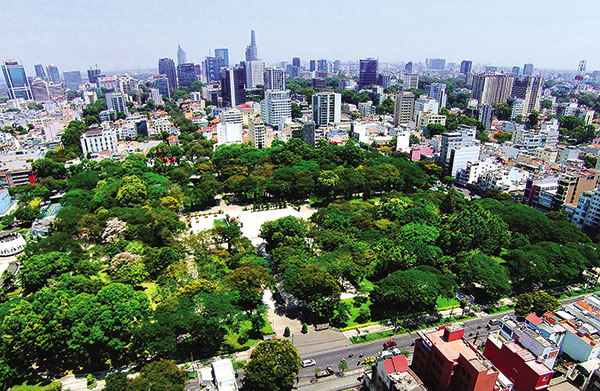
Vietnam has come far in the last decades, and some in the foreign business presence have witnessed its celebrations and struggles, Photo: Le Toan
Ronan Le Bihan CEO at Mango Bay Resort, Phu Quoc
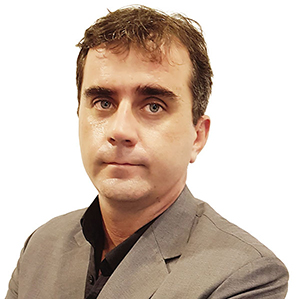 In 2002, I was offered a position for the setup of "Le Domaine de Tam Hai”, a beach resort in Chu Lai Open Economic Zone, Quang Nam.
In 2002, I was offered a position for the setup of "Le Domaine de Tam Hai”, a beach resort in Chu Lai Open Economic Zone, Quang Nam.
At that time, the only knowledge I, and many people in my country had, was that Vietnam was one of the fastest-growing economies in Southeast Asia. But obviously it was still early days and development was far from where we are now.
With experience in Quang Nam province and Phu Quoc island, I’ve seen two of the top tourism destinations become what they are. Both went from small village spirit to international tourism destination.
The work done in Hoi An/Danang is most impressive. Not only did we see development in terms of
hotels and resorts, but also in infrastructure: roads, airports, schools… everything has been done to make tourists welcome and development possible.
I’ve made Phu Quoc my home for 11 years, and left it only three months ago. I’ve seen many things happen there. Of course, I’ll always miss the feeling I had the first time I came to Phu Quoc: red dirt roads, empty beaches,
forest drives… but I spent enough time there to appreciate the way the development of infrastructure improved local life, with roads, electricity, and hospitals. I personally left Phu Quoc because I couldn’t get a proper school for my young kids. So I hope infrastructure development will continue, not only real estate development.
My only worry when I see so much happening is that the offerings won’t match needs as fast as people are expecting.
Finally, I would like to thank Vietnam for allowing me to be part of that great adventure.
Aik Meng Eng Chairman of Vietnam Integrated Medical Services
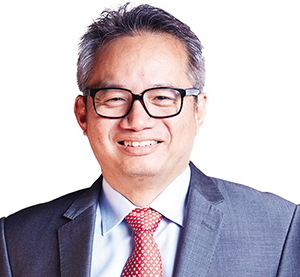 Vietnam has the sort of beauty and timeless charm you can’t find anywhere else in the world, but it is accompanied by a dizzying level of energy, passion, and hope. I have seen the fascinating transformation of Vietnam in the last 15 years, and the hopes and dreams of its people being realised every day.
Vietnam has the sort of beauty and timeless charm you can’t find anywhere else in the world, but it is accompanied by a dizzying level of energy, passion, and hope. I have seen the fascinating transformation of Vietnam in the last 15 years, and the hopes and dreams of its people being realised every day.
In the early days roads were clogged with cyclos and bikes, but now they are even more crowded with cars and trucks! Nevertheless, the spirit of the Vietnamese people still remains strong.
Personally, there is nothing more enjoyable than enjoying a bowl of pho with thick Vietnamese coffee on a sidewalk while watching the buzz of the country go by. It’s still one of my favourite things to do here. Once you have eaten the local street food here, it’s almost impossible to compare it with food anywhere else on the planet.
The Vietnamese people have always believed in getting better and doing more, they are hardworking yet gracious. They look to the future but have never forgotten their wonderful culture and traditions. This is a pool of talent and consumers that is hard to find anywhere else in the world!
Professionally, I have seen investors flock to this country and can only imagine more coming. Vietnam offers many business and investment opportunities, but the consumers are now getting more sophisticated and demanding so it will be wise for foreign businessmen to understand the Vietnamese nuances well. As consumers, the Vietnamese are also now much more global and plugged into the latest trends, willing to spend more.
One thing that really amazes me about Vietnam is the close relationships people have with their families and friends. This is something that gets lost in many other countries as they progress, and I hope that Vietnam does not lose this.
We opened our Singapore Vietnam Cancer Center in May this year to offer the Vietnamese an option to receive testing, diagnosis, and treatment at an international cancer facility that will have both Vietnamese and Singaporean doctors working together. This will allow patients to receive treatment partly in Vietnam and Singapore, or if they choose, entirely in Vietnam so they can be close to their families. We know that this is an important consideration to Vietnamese patients and their families.
Alexander Bischoff CEO of DIGI-TEXX Vietnam
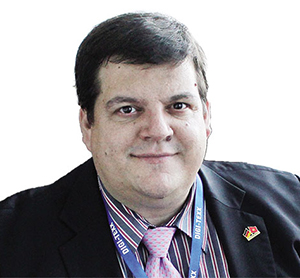 Vietnam’s development is amazing. I like to take pictures and if you compare those taken during the last five years, you can see a lot of construction going on in Ho Chi Minh City, Hanoi, and Danang. I hope the infrastructure can keep up with the growing traffic, especially in the downtown areas. Today most young Vietnamese can read, write, and speak decent English, and this opens many opportunities to connect to the outside world. In the area of education, the English language opens up doors to the latest research and will help the development of Vietnam excel.
Vietnam’s development is amazing. I like to take pictures and if you compare those taken during the last five years, you can see a lot of construction going on in Ho Chi Minh City, Hanoi, and Danang. I hope the infrastructure can keep up with the growing traffic, especially in the downtown areas. Today most young Vietnamese can read, write, and speak decent English, and this opens many opportunities to connect to the outside world. In the area of education, the English language opens up doors to the latest research and will help the development of Vietnam excel.
The founders of DIGI-TEXX made the right decision to set up the company in Vietnam. We were among the first business process outsourcing firms in the country, arriving several years before others showed up. If you are the first, you always have some advantages. One of which was that many Vietnamese studied in Germany and spoke the language. This helped to build immediate trust with our customers. It also made communication much easier. Throughout the years we have received a lot of support from Quang Trung Software City and from the local government. We were able to find loyal employees who were willing to contribute their ideas, time, and effort to build our company.
I have called Vietnam home for many years now. This is where I have put the centre of my life. When I am away for more than two weeks I miss Ho Chi Minh City and when I arrive at Tan Son Nhat airport, I am still excited to be home.
Of course I am still very interested in what happens back in Germany, and I follow the news regularly. With the availability of communication systems, I can keep in close contact with my family and friends in Europe. It feels as if over the years Vietnam and Germany have come closer and the time difference become less important. Only when you hop on a plane and fly between the continents does the distance become apparent.
Mikio Masawaki General Director of Sapporo Vietnam Limited
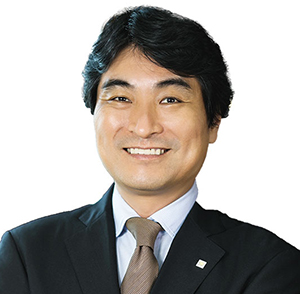 I first came to Ho Chi Minh City in 2009 and lived there from 2014 until now. I felt so excited about the city, in the medley of sound and colour. The life is full of energy and vivid, which is quite different from the clean and quiet city life in Japan. I was really amazed at the drinking culture in Vietnam, as everyone, from the youth to the elderly, love drinking beer. People prefer to hang out and enjoy glasses of beer in a happy atmosphere. This culture has made Vietnam the key investment destination for Sapporo.
I first came to Ho Chi Minh City in 2009 and lived there from 2014 until now. I felt so excited about the city, in the medley of sound and colour. The life is full of energy and vivid, which is quite different from the clean and quiet city life in Japan. I was really amazed at the drinking culture in Vietnam, as everyone, from the youth to the elderly, love drinking beer. People prefer to hang out and enjoy glasses of beer in a happy atmosphere. This culture has made Vietnam the key investment destination for Sapporo.
Vietnam is likely to surpass Japan to become Asia’s second largest beer market in the next 10 years. Vietnam has a fast growing economy so people’s lives are better with rising incomes and consumer expeditures. As a result, the demand for quality and safe products has been increasing sharply, which offers tremendous opportunties for Sapporo.
I grew up in rural areas in Japan with a lot of paddy fields and mountains. During my stay in Vietnam, I have had a chance to visit the outskirts of the city and different towns in the country. The atmosphere and scenery here are similar to my hometown, which makes me feel like I’m at home. In addition, Vietnamese cuisine is diverse, abundant, and attractive. My favorite dishes are traditional specitilies like pho and other noodles from different regions in Vietnam. I have been attracted to the country’s culinary scene for a long time, which makes my living experiences in the country become more exciting.
Vietnam is dynamic, with plenty of room for development. For its long-term investment future in the country, Sapporo Vietnam has the following mission: "contribute to enrich Vietnamese cuisine culture”. We are trying our best to build a foundation and accelerating our efforts to fulfil that mission.
Murat Utemissov CEO of Kusto Home
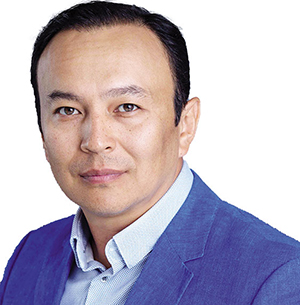 I still remember my first visit to Vietnam was in 1998. Later on, we started to recognise potentially strong future demand for high-end property due to growing consumption and a developing economy.
I still remember my first visit to Vietnam was in 1998. Later on, we started to recognise potentially strong future demand for high-end property due to growing consumption and a developing economy.
I spent two years with my family in Ho Chi Minh City, which helped me to better understand the local culture and specifics on doing business. In fact, we can list many factors that make Vietnam a precious gem – a very young population, a stable political environment, strong FDI – and as a result, we can see a very fast growing middle and upper class.
District 2 in Ho Chi Minh City is a good example. It used to be a quiet and empty area some time ago, but now, one would be surprised by its fast development of residential and commercial buildings introduced by famous international investors.
Our company, Kusto Home, is proud to be among other big foreign developers contributing to the development of the area. We are dedicated to delivering high quality, international standard products to provide buyers with a better living experience. The big focus at Diamond Island is on creating a favourable environment, introducing amenities for all generations. Kids can have their own paradise for playing and learning, the parents can take care of their health by swimming or doing sport activities, the elderly can enjoy relaxing at the Zen Garden, and the whole family can get together for a nice BBQ.
Based on the strong success of Diamond Island, I am optimistic about the long-term business environment in Vietnam. Our company is now working on new investment projects in this rapidly developing and beautiful country.
Kent Wong Partner and Head of Banking and Capital Markets at VCI Legal
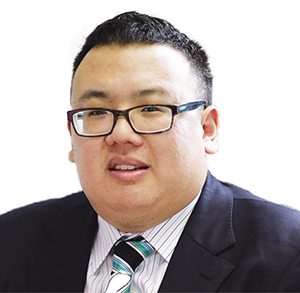 In 2012, I relocated to Ho Chi Minh City, in part, to try and do my small bit in taking Vietnam to the next level globally. Vietnam has emerged as one of Asia’s great success stories. In a nation once ravaged by war, the economy has continually posted annual per capita growth of at least 5.3 percent since 1986 – greater than any other Asian economy apart from China.
In 2012, I relocated to Ho Chi Minh City, in part, to try and do my small bit in taking Vietnam to the next level globally. Vietnam has emerged as one of Asia’s great success stories. In a nation once ravaged by war, the economy has continually posted annual per capita growth of at least 5.3 percent since 1986 – greater than any other Asian economy apart from China.
Vietnam has benefited from a programme of internal restructuring, a transition from an agricultural base toward manufacturing and services, and demographic positives powered by a young population.
The image of the country’s youth riding carefree on modern, sporty motorbikes under the big, bright lights of skyscrapers epitomises Vietnam’s new environment.
I settled down here and made Vietnam my ‘second home’ almost five years ago. I had fallen in love with Vietnam after a sightseeing trip to Halong Bay in 2009, and also because of the wealth of commercial and lifestyle opportunities – so many beaches! – the diverse natural countryside, and its welcoming and hospitable people.
I believe that Vietnam can act decisively to head off short-term risks and embrace a productivity-led agenda to make the country internationally competitive. If Vietnam does so, it can build on its many intrinsic strengths – a young labour force, abundant natural resources, and political stability, to name but a few – to create a second wave of growth and prosperity.
Strategically positioned in the centre of Asia, Vietnam’s economy will consistently rank as one of Asia’s most attractive destinations for foreign investors. Undoubtedly there will be challenges, but I believe that with the resilience and diligence of the Vietnamese people, they can be overcome.
My warmest congratulations and best wishes for a happy celebration to the people of Vietnam on Vietnam National Day 2017!
Soon Su Long Indochina CEO and Vietnam country head at Maybank
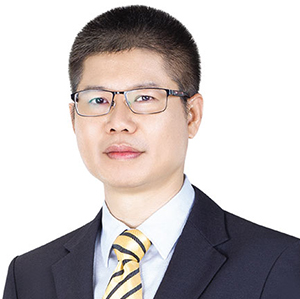 I've been living in Vietnam since 2012. The five years I’ve been here have perhaps been some of the most eventful in my life.
I've been living in Vietnam since 2012. The five years I’ve been here have perhaps been some of the most eventful in my life.
Even though this isn’t the first foreign country I’ve lived and worked in, it’s by far the most dynamic and unpredictable. Up to then I’d lived and worked in more economically-developed countries like the UK, Malaysia, and Singapore. Vietnam from both an economic and social perspective is a younger and faster-evolving environment than those other countries. It has been transitioning from an agricultural economy to one based on manufacturing, and opening up its economy more and more along the way… which comes with its attendant conflicts in terms of balancing the interests of the government against the private sector, and balancing local and foreign interests. Socially, as Vietnam becomes more exposed and integrated internationally, it’s interesting to see the differences in thinking between the older and younger population, as well as between those who are exposed to foreign culture and those who aren’t.
Overall, why I find my time in Vietnam exciting is because I see myself here as both a player as well as a witness to a country in rapid change. And let’s not forget one thing.
How a foreigner views a country is primarily dictated by the character of its people. On that score, I’ve been most impressed by the general friendliness, sense of curiosity, and down-to-earth nature of the Vietnamese. That’ll be the key reason why Vietnam will continue to attract foreigners to come and contribute to its growth story.
Brian Hull - General director of ABB in Vietnam
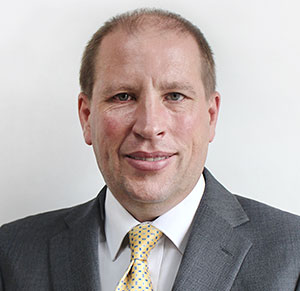 Although I’ve only been in Vietnam a few months, I think I have been lucky enough to experience all of these.
Although I’ve only been in Vietnam a few months, I think I have been lucky enough to experience all of these.
The sense of vitality and fun is evident in the faces of the Vietnamese, who always seem to be wearing a smile. I haven’t quite worked out the source of the happiness, maybe it’s the great food or the cheap beer at the Bia Hoi, or maybe it’s the realisation that they are at a momentous stage in the country’s development.
There is a vision to advance and develop everywhere. The boom in renewable energy projects with plans for solar and wind power to be harnessed. The investment in new factories, housing complexes and transport infrastructure all point to a future which will be better than the past.
For sure there are challenges, with some worrying about the pace of change and what the future will hold, and some looking to take unfair advantage. But I am pleased to be in a country with such wonderful natural and human resources. The positives far outweigh the negatives.
Two brief experiences from this weekend sums up for me the reason this country has a bright future. Being taken around the wonderful caves and lakes at Ninh Binh rowed all the time by a lady who was working hard but with a smile on her face! And when I was coming out of a local gym, a young Vietnamese boy said Hello, asked my name, where I was from and engaged in a pleasant conversation, obviously keen to try out his English.
With such hard work and willingness to learn new skills the future is surely bright for Vietnam. And I’m pleased to call it home.
(Source: vir.com)


